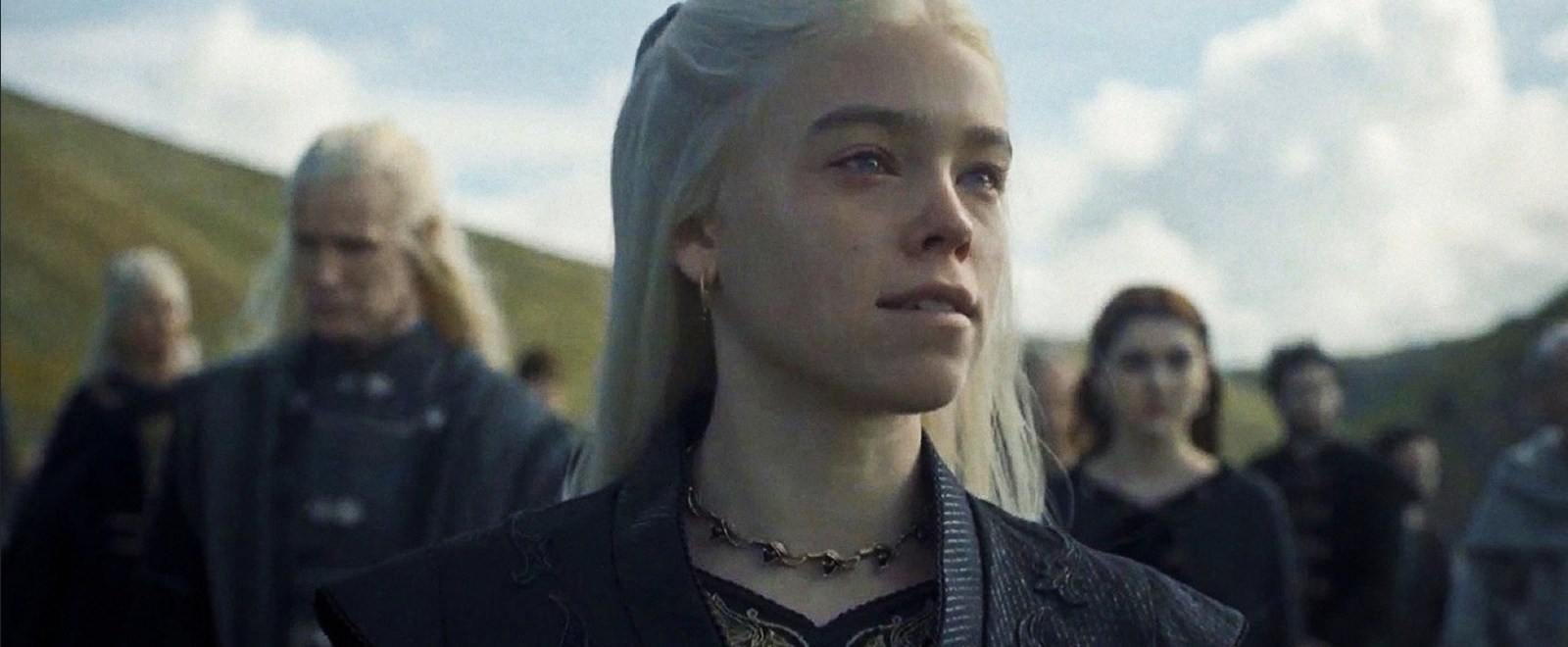In the first episode of House of the Dragon, King Viserys I goes from obsessing over producing a male heir to naming his teenage daughter Rhaenyra the future and first Queen of Westeros. King Viserys (played with an energetic melancholy by English actor Paddy Considine) faces several personal conflicts: his unpredictable brother Daemon makes a violent arrival in King’s Landing, his wife dies during childbirth, his only son and heir dies anyway, and then his brother betrays him. In the episode, we get that Viserys is a more thoughtful and active ruler compared to what we’ve seen in Westeros over the course of Game of Thrones.
But he’s also emotional and slightly impulsive as a result, like most rulers of Westeros are. The guy also likes building miniatures (he’s just like Henry Cavill). Viserys, Rhaenyra (who wants adventure), and Daemon (who wants to be understood) are not like the Targaryens we saw or learned about on Game of Thrones: unhinged and Iron Throne-oriented. The House of the Dragon Targaryens might have some of that in them, but it’s not their defining characteristic… yet.
On Game of Thrones, the violent and cruel Viserys’s uncompromising desire for power got molten gold poured onto his head. Daenerys Targaryen had an interesting if meandering journey, but met a disastrous end thanks to the Targaryen tendencies we heard about for so long: they all go mad and/or desire incest eventually. The character’s final moments, which included an attempt to pursue a romantic relationship with Jon Snow after discovering they are related and burning down the home she spent her entire life trying to get back didn’t add up, save for what Game of Thrones always integrated into expositional dialogue: Targaryens are crazy!
Even at the show’s narrative peaks, Daenerys always felt like a dense caricature, a version of something potentially complex and layered, but never quite living up to her own hype. No matter how hard the show tried to make Daenerys – or Viserys – human, it felt strained and uninteresting, which didn’t help Daenerys’s unearned, unemotional end. The one-dimensionality of the Targaryens as presented on Game of Thrones made House of the Dragon as unappealing to me as, say, the string of words “Game of Thrones spin-off.”
Unfortunately, despite myself, House of the Dragon has potential, possibly even more than Game of Thrones. It has little source material to jump off of, so while it is based on something, it has its own, singular journey, untethered to several hundred paged books that a bunch of people will yell about ruining online. Game of Thrones suggested that Targaryens are all the same, even the good ones.
But against all odds and centuries of incest, House of the Dragon gives the silver-haired royals substance, individuality, and necessary humanity that Game of Thrones gave almost every character except the Targaryens and Ramsay Bolton (they even gave this to Cersei after she blew up half the characters). While it’s completely possible that King Viserys, Daemon, or Rhaenyra could snap into the Targaryen madness we learned about so, so much on the show’s predecessor, it will be a more earned journey, and more gutting than Daenerys sudden turn for the plot.







